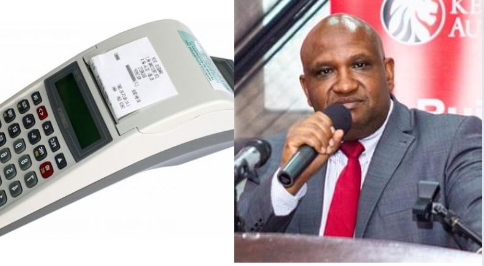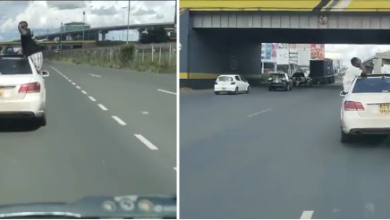Install new machine or face Sh1 million fine – KRA tells Kenyan traders

Businesspeople and traders only have one month to buy and install the new, improved electronic tax register equipment on their properties, according to the Kenya Revenue Authority.
KRA wants to use the new devices that have been modified to send information to the taxman automatically to monitor firms’ real-time invoices.

Businesses and traders risk a Sh1 million punishment or three years in prison if they don’t comply by July 1.
Hakamba Wangwe, the chief manager in charge of Tax Invoice, stated:
“If a VAT registered taxpayer does not comply within the specified period then we invoke section 53 of the VAT Act which says that you will either be fined Sh1 million or three years imprisonment or both if you don’t comply within the specified timeline.”
KRA has authorized 16 vendors to provide the new devices, which also call for the installation of new software.

According to one of the authorized providers, the price of the gadgets varies based on the features and ranges from Sh45,000 to Sh120,000.
The expense of upgrading to the new specifications is covered by the dealers, and the billing software is being offered for roughly Sh80,000.
The taxman has been utilizing manual tax records for the past 30 days, which allowed KRA personnel to examine them.
The new gadgets now automatically transmit the information to KRA through the internet, giving the taxman access to all of a business’s taxable transactions.
This is one of the steps KRA has taken to help it reach its income goals. As a result of mounting debt, pressure has been mounting on the agency to raise enough cash to support government operations.
To reduce tax fraud, KRA also intends to have its officers start wearing body cameras.
According to the idea, employees of the domestic tax department and of customs and border control must have cameras fastened to their uniforms at all times.
“Very soon we will also be ensuring our enforcement officers have body-worn cameras, like the ones you see in the US so that any action they take is recorded and we can see it. When you put it off, we will also have to understand why you do it.
“This is so that as you engage out there, you do not get involved in activities that will compromise our objectives. We have to employ risk management where our risks are highest, so they will be more for our officers at border points where things are moving in and out and all our custom areas,” KRA Commissioner General Githii Mburu said.



![Festus Makori and Jerica Muthoni. [Lilian Chepkoech]](https://mkenyaleo.co.ke/wp-content/uploads/2024/04/Q16uLG6Y0KB9b14AiLHv6W3TOXDWD0bftwRfm4YQ-220x150.jpg)






